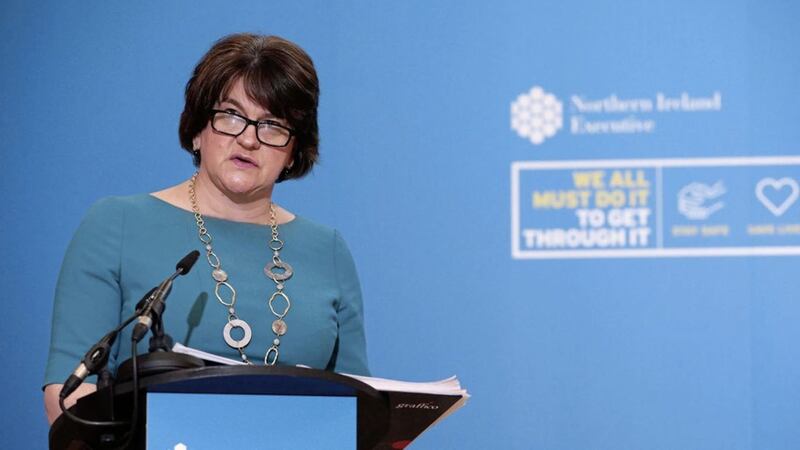The extraordinary meltdown in the DUP over the past week appears to have been triggered by an internet survey published in last Monday’s Belfast Telegraph.
Although the usual caveats about internet surveys apply, they are beside the point: what matters is the DUP found the results credible.
The survey examined voting intentions if a Stormont election were held tomorrow, compared to the last vote in 2017.
Its main conclusion is that the centrist surge in last year’s local, European and Westminster elections continues. Alliance is up seven percentage points to 16 per cent, with the DUP down five to 23 per cent and Sinn Féin down four to 24 per cent.
Falling behind Sinn Féin would be enough on its own to give the DUP serious jitters. But it is where the DUP’s lost voters are going that is the real problem. TUV support doubles, up three points to six per cent. If this is correct, one DUP voter in nine has switched to Jim Allister’s party. Almost exactly the same number of DUP voters have moved in approximately the opposite direction, to the UUP and Alliance.
This split is reflected in the findings for party leaders.
Arlene Foster has an apparently respectable 36 per cent approval rating, about half-way between top-placed SDLP leader Colum Eastwood and bottom-placed Sinn Féin deputy leader Michelle O’Neill (and also five points above Allister.)
However, Foster owes this to the approval of one-quarter of nationalists. Fewer than two-thirds of 2017 DUP voters ranked her performance good or great.
The reverse does not quite apply: O’Neill had disappointing ratings from Sinn Féin supporters and terrible ratings from everyone else, which at least has the virtue of simplicity.
The survey’s message to the DUP is an irresolvable conundrum.
Foster has been widely praised over the past year for a more collegiate and less brittle leadership style, keeping the executive together despite June’s IRA funeral scandal and Sinn Féin solo runs on the way into lockdown in March. Alas, this is the applause of a heavenly choir. Back on earth, nationalists are never going to vote for the DUP, while a decisive bloc of DUP voters have been antagonised by what they see as a soft-soap approach to Sinn Féin.
Again, there is no exact republican comparison.
Sinn Féin has to navigate tensions between making Stormont work and appearing to make Northern Ireland work. Its voters resent humouring perceived DUP arrogance or bad faith and the party cannot bear losing any support - witness its touchiness towards People Before Profit.
However, there is no republican equivalent to the TUV and ultimately Sinn Féin is not as dependent as unionism on Stormont’s survival. Foster’s leadership endures as a teetering monument to that reality: we have had RHI and crocodiles, universally considered a disaster; then all-in-this-together, which is still not working for the DUP. So now what? There is no painless answer. The DUP can neither stand still nor move in any direction without losing a chunk of support that might see it slip into second place at Stormont - a position it has never conceded it would accept.
Hence the past week’s attempt to offer multiple answers, simultaneously promoting and dissenting from the executive’s Covid policy - cakeism begun by agriculture minister Edwin Poots but by no means confined to him. Foster has gone along with it, as has DUP education minister Peter Weir, who repeatedly cited the IRA funeral.
The heavenly choir was impressed when Foster and O’Neill put the funeral behind them but the DUP’s disgruntled supporters still clearly see it as an original sin.
Or so the party believes: it would not be this spooked by an online survey if it did not feel the results chimed with what it is hearing from its base.
In 2014, at the height of the welfare reform crisis, Poots attempted to lead or at any rate start a coup against former DUP leader Peter Robinson, who promptly sacked him.
This time is different. Foster has long remained in post because the party has nobody to replace her. The more problems pile up as a result, the more reluctant rivals are to grab the poisoned chalice. Perversely, the worse things get, the more unchallenged Foster is - while also being too weak to impose discipline.
Poots is capable of better politics than the tribal baiting of the past week, which mostly looks like a desperate party positioning exercise.
He may hope those TUV voters are worth it.









